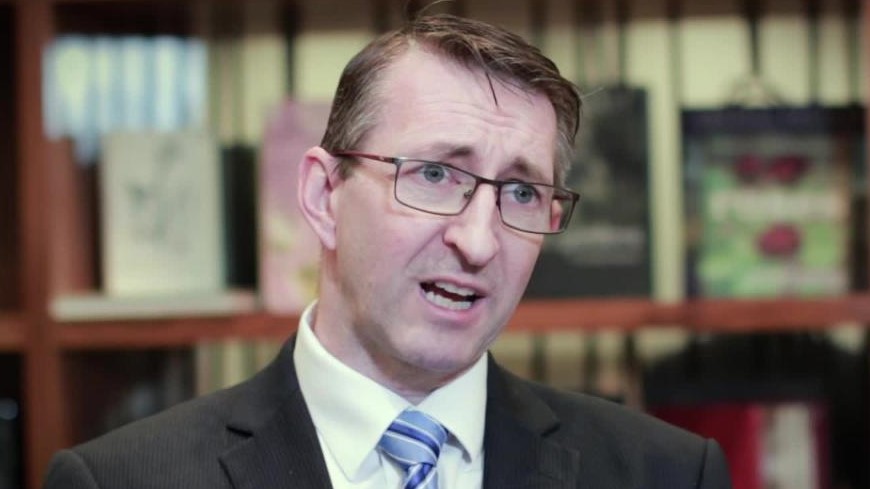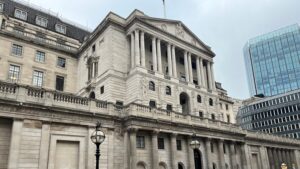How has the coronavirus affected your day-to-day work?
I am enjoying the lack of commute to the office although, if I didn’t have a bolthole in the attic to hide in and to get on with work, I think things would be a lot more challenging. I had been trying to do a working day from home each week before the pandemic – it is surprising how much gets done when you can avoid the phones and interruptions! – so thankfully was all set to transition quite smoothly to a full-time WFH set-up. Having good natural light and a view across Langstone harbour has ensured the attic bolthole remains bearable.
For work, we have had to embrace teleconferences a lot more. Whilse we have always valued a physical meeting with managers, because we have known our holdings for some time, this transition has been easier than we would have imagined. We have been very busy touching base with our holdings for the last two months, so the convenience for all in not needing to be dragged away from desks to attend meetings – both us as hosts and our underlying managers – is likely to have a lasting impact on our willingness to accommodate ‘remote’ meetings.
 What has been your biggest contributor to performance since the coronavirus hit markets? What has been your biggest detractor?
What has been your biggest contributor to performance since the coronavirus hit markets? What has been your biggest detractor?
The big contributor was being active and taking decisive action at the start of March to raise liquidity when the equity markets appeared to overlook the caution that was coming from bond markets. We did not envisage the credit dislocation that ensued from mid-March onwards, but our liquidity enabled us to take advantage of that and has been a good driver of returns since then – particularly non-agency mortgage-backed securities. We have felt immensely more comforted in getting equity-like returns with far superior security in some areas of the credit world, than trying to be heroic with equity allocations.
The biggest detractor has been a leaning toward cheap equities. Besides having a flurry of outperformance in the fourth quarter of 2019, they have been an unloved area for some time. While the dispersion in valuations was already at extreme levels, this continued to widen at the onset of the crisis, which has proved disappointing. We feel sure corporate fundamentals combined with valuations will matter again at some point. We would hope it is sooner rather than later …
Do you have any behavioural mechanisms in place for navigating the market volatility?
Seek out balance and offset either excessively downbeat or upbeat views with opposing ones – remembering it is easy to be at one extreme or another when everyone is leaning that way. At such times, thinking things may not be as extreme can provide the opportunity – that certainly proved the case for us as we navigated the global financial crisis all those years ago.
What has surprised you most about markets during the coronavirus sell-off?
The extent of dislocation in credit markets that even impacted US Treasuries for a few days – highlighting there is absolutely no hiding place when it comes to a liquidity-induced market stress. It also reconfirmed our view their incredibly low yields are just not going to offer investors the protection they need as they did historically – especially when there is a wall of supply coming.
What feedback have you had from clients since the sell-off?
Clients welcome communication and that is something we take a great deal of pride in. We have increased the frequency of updates to advisers and their investors to let them know what we are thinking and the actions we are taking. We have been surprised by the lack of panic from end-clients, hopefully validating the point that while markets have become more turbulent, they are avoiding letting that throw long-term investment planning out of the window.
What are the key messages you want to hear from your holdings at the moment?
It is key for us that our underlying managers continue to do what is consistent with their investment philosophy and process. Our holdings are bought to enable us to achieve a defined client outcome and to blend with other holdings they sit alongside. We want their focus to continue to be doing what they have previously done and hopefully using the market volatility to further enhance their portfolios – consistent with their process and aim. We would be a little more wary of managers who appear to be changing their spots or who have been caught in the headlights and are overwhelmed to the point of inactivity. Thankfully, this is not something we have encountered.
How does this compare to other market sell-offs you have managed money through?
I’ve been through a few now – Asian financial crisis, dotcom bubble, global financial crisis, European integration and solvency and, of course, Brexit. They are generally a reminder that, if you are able to keep your head and avoid the hysteria of crowds, there is a path to the other side. The ability to be more rational also makes it easier to look for relative opportunities – and the occasional absolute one – that market dislocations offer.
How do you find working remotely during volatile markets?
While we have migrated to organised team conference calls, less constant communication has probably reduced my appetite for broad news coverage while increasing the appeal of searching out insightful comment on specific investment areas. This has helped fill the void from the lack of interruptions from the office desk and also means our discussions are a lot less reactionary and more considered when we share our thoughts and ideas.
What do you do for fun when you take a break from working at home?
It has been a balance between devising activities and searching online for indoor sports activities to keep the children busy, while trying to avoid too many chores and DIY. One surprise has been the temporary adoption of Alfie the cockerpoo (from a relative who has considerably increased their working hours in the health service), resulting in the perfect excuse for us all to have a daily of dose of exercise in taking him for walks. Having a new addition to the family during lock-down has been novel and comforting in what has been a strange dynamic of being holed up together.
What is your favourite snack when working from home?
I have an oversized bag of nuts on my desk to keep me busy when I need to graze. Thankfully our internal newsletter comes up with lots ideas submitted by colleagues, so I am looking forward to trying coconut chips, apple with peanut butter (although I think this could be substituted with peanut butter on almost anything), toasted pumpkin seeds and Huel protein shakes (an idea from our UK manager who would have it as a top holding if it wasn’t a private company).
Do you have a ‘top tip’ to share on working remotely?
Besides planning the day with ‘to-do’ lists, the most useful thing to mention is my ‘MightyMug’ in supplying me the required dose of daily hydration. A team Secret Santa gift last year, it is cleverly designed to avoid being knocked over, so has already been a saviour a few times for my desk and PC.
Ian Rees is deputy head of multi-asset funds and head of research at Premier Miton







